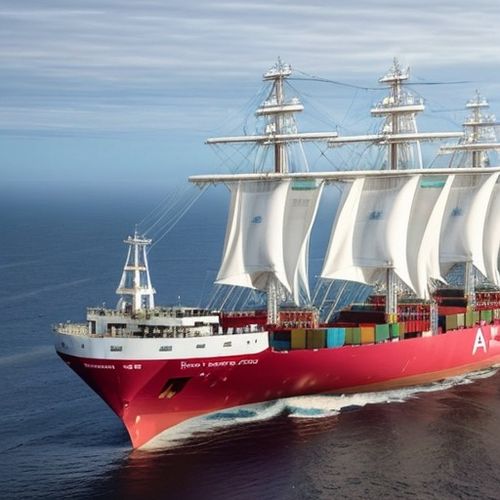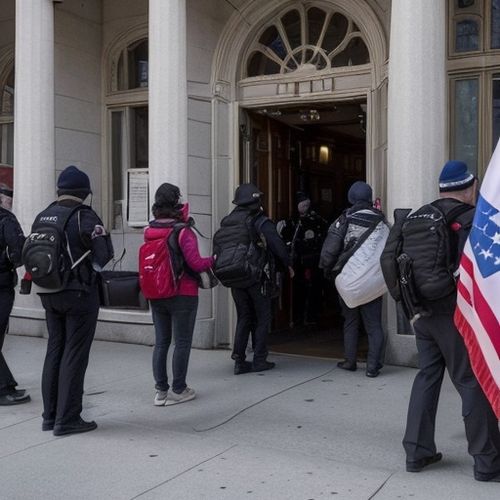In the wake of escalating political tensions and economic uncertainties, a growing number of Canadians are reconsidering their travel plans to the United States. This movement, fueled by a mix of moral conviction and economic pragmatism, is having far-reaching implications on both sides of the border.
For many Canadians, the decision to boycott travel to the US was not made lightly. Jason Dale, a high school teacher from Port Dover, Ontario, had meticulously planned a family vacation to Tennessee for over a year. This trip was meant to be a final hurrah before his oldest son left for college, a chance to relive cherished memories from a similar trip taken when the children were younger. However, the re-election of Donald Trump and his subsequent rhetoric, including threats of tariffs, annexation, and mockery of Prime Minister Justin Trudeau, became the tipping point. Dale and his group of 11 family members decided to cancel their $5,000 CAD trip, choosing instead to keep their money within Canada.
Dale is not alone. Across Canada, a chorus of voices is growing louder, advocating for a boycott of US travel over the next four years. The reasons are varied but deeply rooted in the current political climate. Some Canadians, like Kathy Rowe from Torbay, Newfoundland, feel a moral obligation to stand against policies they perceive as divisive and harmful. Rowe and her husband decided to cancel their non-refundable trip to Dallas, opting instead to explore Canada, despite the financial loss.
The economic impact of this boycott is becoming increasingly evident. Canada is the largest source of international visitors to the US, with 20.4 million Canadians visiting in 2024 alone, generating $20.5 billion USD in spending. A 10% reduction in Canadian travel could result in a staggering $2.1 billion USD loss and 14,000 job losses in the US. The Travel Industry Association of Canada warns that the situation could worsen if tariffs are imposed, further dampening cross-border travel.
Businesses on both sides of the border are already feeling the pinch. Kristine Geary, founder of Maple Leaf Tours in Kingston, Ontario, has seen a 30% increase in cancellations for US travel packages this year. Similarly, Monica Church, a New Jersey resident who rents out vacation properties, has experienced cancellations from Canadian clients citing the trade war as the reason.
The decision to boycott US travel is not just economic; it is deeply intertwined with social and political dynamics. Many Canadians express concern over safety and security, especially in light of Trump's policies targeting marginalized communities. For instance, Jason Dale's middle son expressed anxiety about traveling to the US with his two gay fathers, prompting the family to cancel their trip. This sentiment is echoed by others who fear becoming targets due to their political views or affiliations.
Conversely, some Americans are also apprehensive about traveling to Canada, fearing backlash over the trade war. This mutual anxiety highlights the deep-seated concerns on both sides of the border, creating a climate of uncertainty and hesitation.
In response to these challenges, Prime Minister Justin Trudeau has called on Canadians to "choose Canada" by supporting domestic businesses and tourism. This call to action extends beyond travel, encouraging Canadians to buy local products and support Canadian industries. Trudeau's appeal underscores the broader economic and social implications of the current situation, urging Canadians to stand together in solidarity.
The future of Canada-US travel remains uncertain. While some Canadians are resolute in their boycott, others are torn between their desire to support their country and their personal or professional commitments. The impact of tariffs and the fluctuating value of the Canadian dollar further complicate the situation. As of February 6, 2025, the USD to CAD exchange rate stands at 1 USD = 1.4335 CAD, indicating a stronger US dollar. This economic reality adds another layer of consideration for travelers.
The growing movement to boycott US travel among Canadians is a powerful statement of solidarity and economic self-preservation. It reflects a deep-seated concern over the current political climate and its potential impact on both countries. As Canadians weigh the moral and economic implications of their travel decisions, the situation serves as a reminder of the interconnectedness of our global community and the importance of thoughtful, informed action.
In the face of uncertainty, the call to support local economies and communities gains even greater significance. Whether through choosing domestic travel, supporting local businesses, or advocating for policies that promote mutual respect and cooperation, Canadians and Americans alike have a role to play in shaping the future of cross-border relations. As the situation evolves, the hope remains that dialogue, understanding, and shared values will guide the way forward, fostering a more harmonious and prosperous relationship between these neighboring nations.

By Joshua Howard/Feb 7, 2025

By Sophia Lewis/Feb 7, 2025

By Natalie Campbell/Feb 7, 2025

By Sarah Davis/Feb 7, 2025

By Amanda Phillips/Feb 7, 2025

By Daniel Scott/Feb 7, 2025

By Elizabeth Taylor/Feb 7, 2025

By Laura Wilson/Feb 7, 2025

By Laura Wilson/Feb 7, 2025

By Rebecca Stewart/Feb 7, 2025

By John Smith/Jan 1, 2025

By Joshua Howard/Jan 1, 2025

By Emma Thompson/Jan 1, 2025

By Noah Bell/Jan 1, 2025

By Joshua Howard/Jan 1, 2025

By Emily Johnson/Jan 1, 2025

By Emma Thompson/Jan 1, 2025

By Victoria Gonzalez/Jan 1, 2025

By Lily Simpson/Jan 1, 2025

By Benjamin Evans/Jan 1, 2025